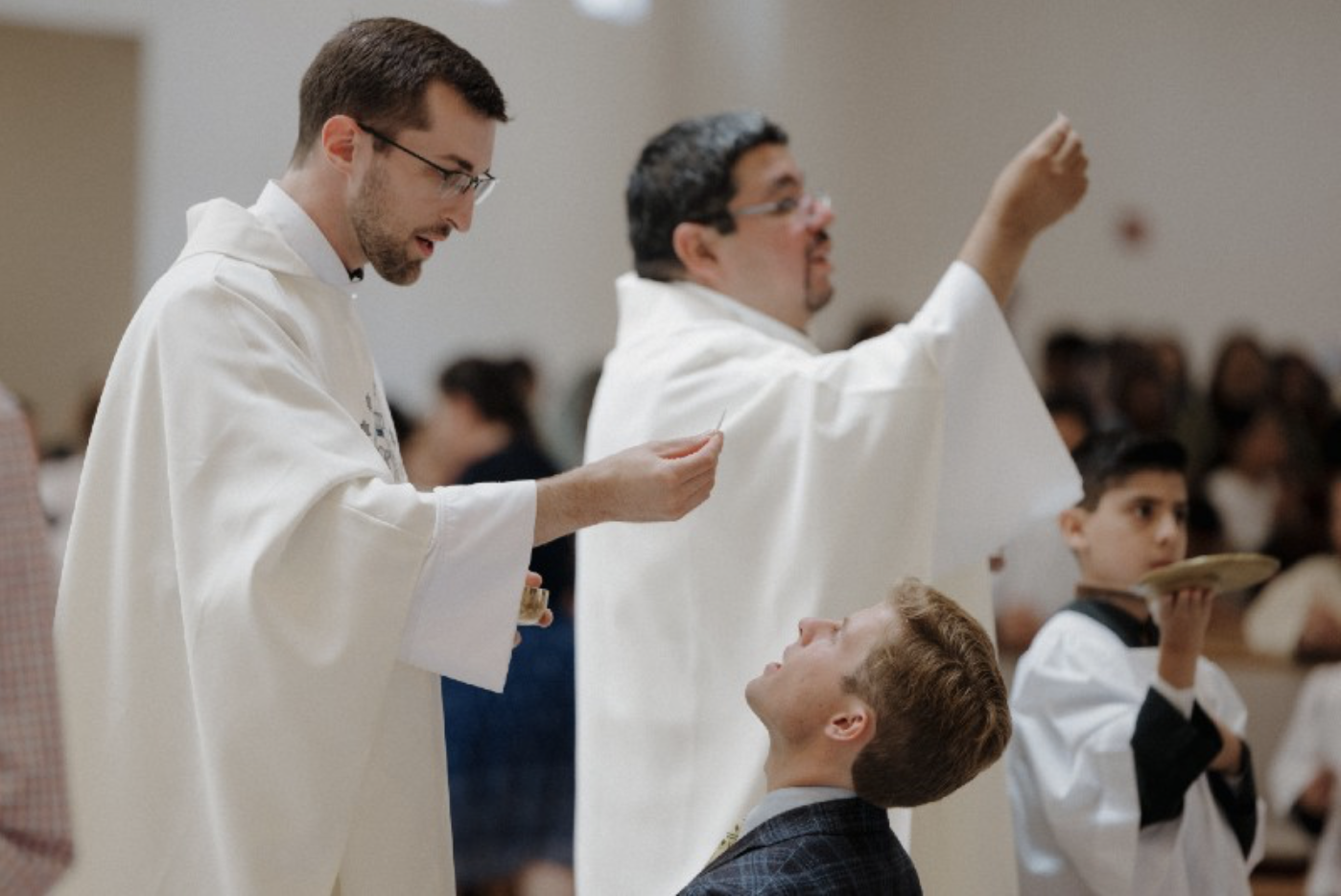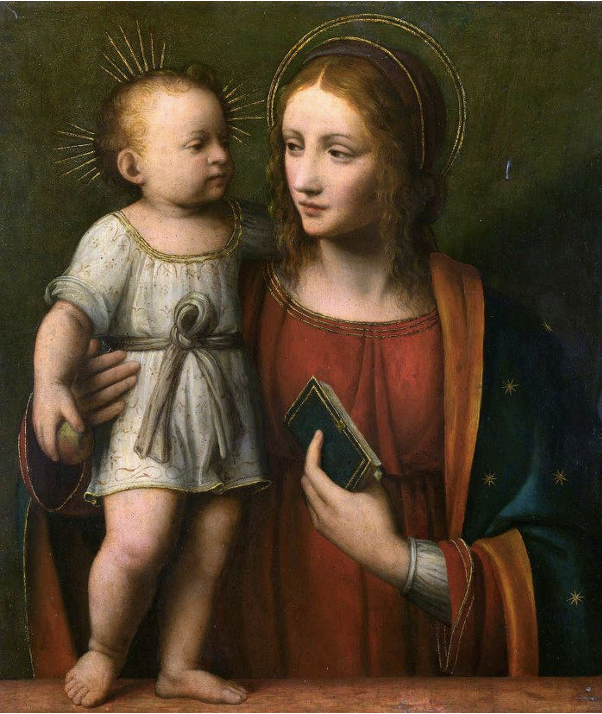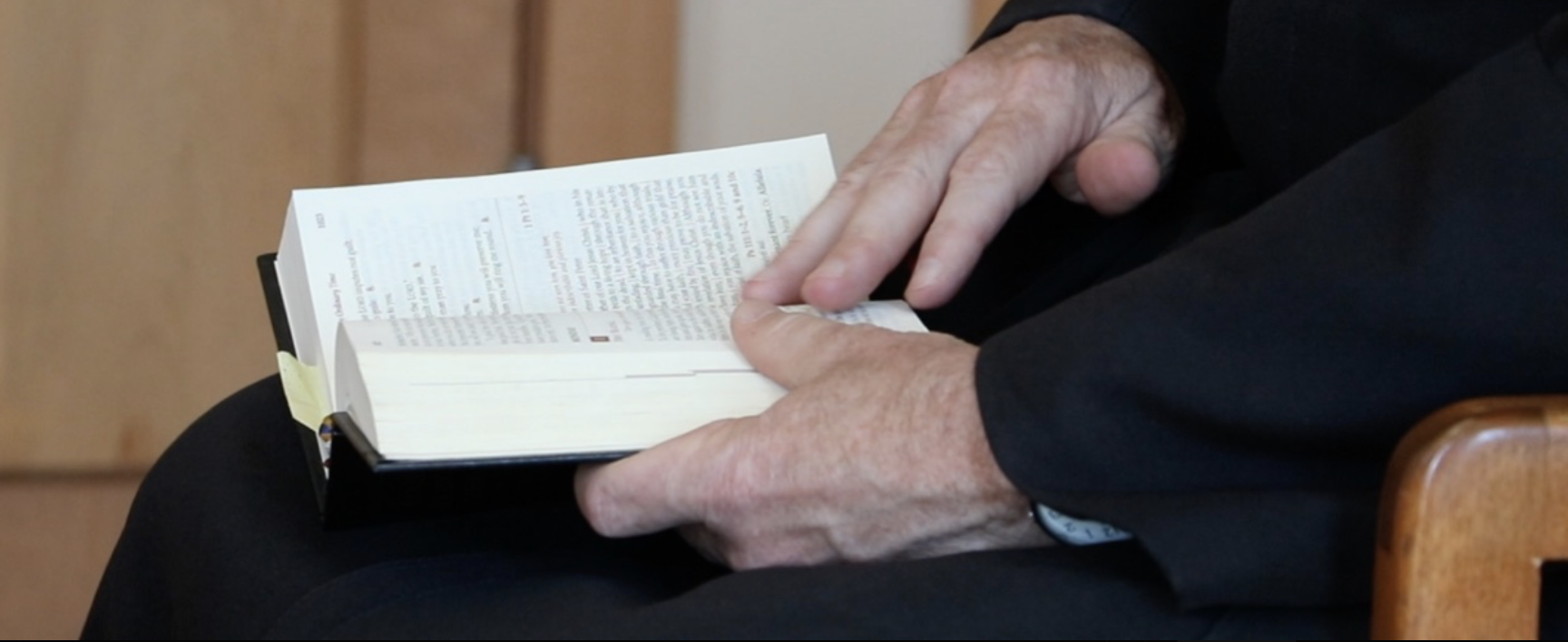
By Fr. Ed Broom, OMV
Only once in Sacred Scripture does Jesus describe the attributes or the characteristics of His Sacred Heart, found only in the Gospel of St. Matthew. (Mt 11:28-30). “Come to me all of you who find life burdensome, and I will give you rest. Take my yoke upon you and learn from me for I am MEEK AND HUMBLE OF HEART. For my yoke is easy and my burden is light.”
Those are the two essential qualities or virtues that Jesus highlights present in His Sacred Heart: both meekness and humility. From this passage the Church has formulated one of its most beautiful short prayers or aspirations, that we can take into our hearts and repeat frequently during the course of the day. That prayer is the following: “Jesus meek and humble of heart, make my heart like unto thine.”
Time and time again Jesus insists on the dire importance of humility if we want to find God’s favor. God rejects the proud and He lifts up the humble. The Parable of the Pharisee and the Publican illustrates this perfectly. (Lk. 18:9-14) The two went up to the temple to pray. The Pharisee pointed out all of his good points and praised himself. The Publican, on the contrary, situated in the back, would not even lift his eyes and begged God to have mercy on him, as he was a sinner.
Our Lady gave us the perfect example in proclaiming herself the handmaid or servant of the Lord and in her marvelous prayer, the Magnificat she breaks out in praise of God and humbles herself in these words: “My soul proclaims the greatness of the of and my spirit rejoices in God my Savior… for he has looked upon the lowliness (humility) of his handmaid… (Lk. 1:46-56)
Given that this virtue is essential to our growth in holiness, let us point out some practical ways in which we can build a spiritual edifice of holiness striving for the virtue of humility. What are some of the signposts to climb this spiritual mountain?
1. PRAYER. It has been said that we are greatest and highest—in the eyes of God—when we are on our knees. This of course means to be on our knees before the Almighty and Supreme God in prayer. By praying we are acknowledging our dependence on God and not on ourselves. In the words of the “Doctor of grace” Saint Augustine, so pertinent to the virtue of humility related to prayer: “We are all beggars before God.”
2. THANK YOU. How important it is for us in striving for holiness to cultivate an attitude of gratitude and to often say to both God and to the many good people that surround us those all—important two words: “Thank you!” Humble people go out of their way to give thanks to others. Jesus was both dismayed and hurt when after healing the ten lepers only one returned to give Him thanks. The one that returned was not only thankful but humble—recognizing that his healing was a pure gift of the Heart of Jesus the Healer, if you like The Divine Physician.
3. TAKE THE LAST PLACE. Jesus offers us the Parable of the banquet. Many were jostling to secure for themselves the best place, the best seat that was closest to the Host. Jesus gave the warning that when invited we should take the last place and not the first. Then we will be first in the eyes of God. This is a sign of a humble heart!
4. CUT OFF IN TRAFFIC: PRAISE AND DO NOT CURSE. Our natural tendency, when we are on the road and someone cuts us off is to utter some nasty words, maybe even to curse the rude guy. This is an all to “natural” reaction, but not supernatural. Jesus wants us to love our enemies and to pray for those who persecute us. These commands are expressed by Jesus in the Sermon on the Mount, the Our Father, as well as when Jesus hung from the cross: “Father forgive them for they know not what they are doing.”
5. COMPLIMENT AND PRAISE OTHERS FOR THEIR GIFTS. One of the most poisonous attitudes in the spiritual life is that of both jealousy and envy. When we capitulate to these ugly feelings, we hurt God, ourselves as well as others. But, on the other side of the coin, we end up by praising or complimenting another person that perhaps we do not really like we win the spiritual battle. Indeed, it is a victory in humility!
6. GREET THE PERSON FIRST. Imagine this scene that all of us have experienced and perhaps quite often. You are walking towards someone you know and the distance between both is shortening. Do you wait to be greeted first or do you take the initiative to greet that the on comer? It may seem somewhat insignificant but whoever takes the initiative to greet first is practicing a host of virtues. What ate they? Charity, courtesy, hospitality, affability and of course humility. We put this person before ourselves and that is humility.
7. “I AM SORRY!” Here is a big one! Easier said than done! When we make a mistake, offend someone or fail in one way or another, it is all too easy to rationalize, to justify or to simply sweep under the rug as if it were nothing, or maybe did not even happen. How insidious and prevalent the ugly head of pride is! A humble person is an honest person and is capable of admitting his error and saying those three very difficult words that are imbued with humility: I AM SORRY! How many relationships have been mended and restored by those simply by exceedingly humble words: I AM SORRY!
8. LISTEN ATTENTIVELY. Saint James states it very clearly: “We should be slow to speak and quick to listen. (Read Saint James 3—the sins of the tongue). A person that wants to do all of the talking and unwilling to listen is often a person filled with pride, and self-love. But a person that makes as concerted effort to listen to the other attentively, encourage and not seek to always get the last word displays great humility and often is very pleasing to Jesus, who was the best of speakers but also the best of all listeners. (Read Luke 24—Jesus and the disciples of Emmaus)
9. CONFESSION. Most certainly every time we prepare ourselves and make a good sacramental confession, our humility thermometer ascends to a much higher level. To confess with transparency, sincerity, and honesty our moral failings to another person, the priest who represents Christ demands great humility. None of us like to bring to light our spiritual ugliness. But it must be done if we want to climb the ladder of humility and holiness.
10. DEVOTION TO MARY. Our Lady, Mary most holy is the surest, quickest and most efficacious pathway to Jesus. In True Devotion to Mary, by Saint Louis de Montfort, this great Marian saint exalts Mary and ten of her most sublime virtues. Among Mary’s most choice virtues is that of her profound humility. Of all God’s creatures Mary was the greatest but also, she was by far the humblest. She recognized that all of her gifts, talents, virtues, were pure gifts from God the Giver of all gifts.
In conclusion, in our pursuit of holiness of life we must strive to understand the paramount importance of the virtue of humility. But even more important: let us stive to put into practice this essential virtue. May we lift up our hearts often during the course of the day, longing for holiness and humility with these words: “Jesus meek and humble of heart, make my heart like unto thine.”



